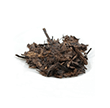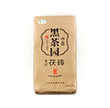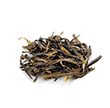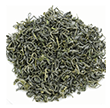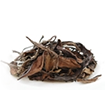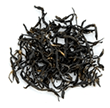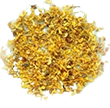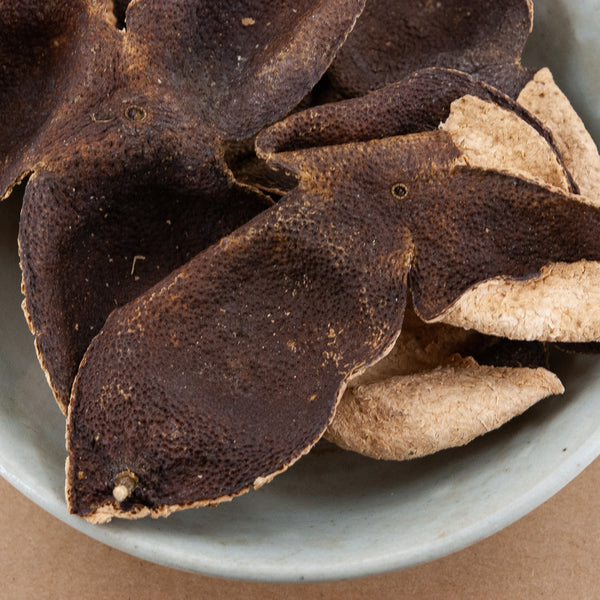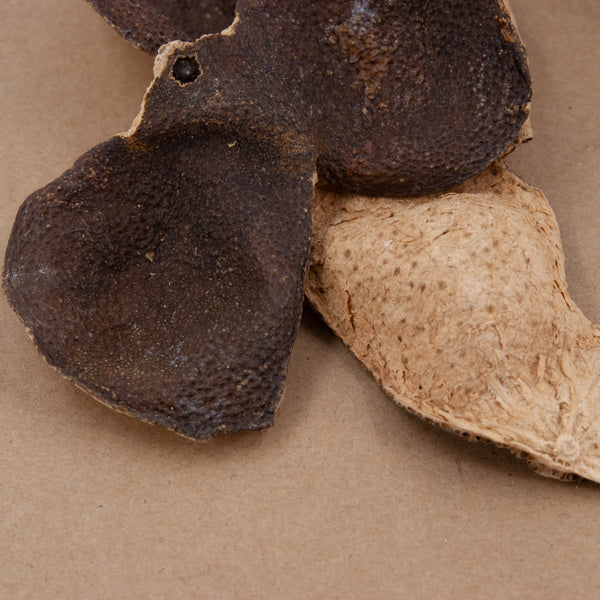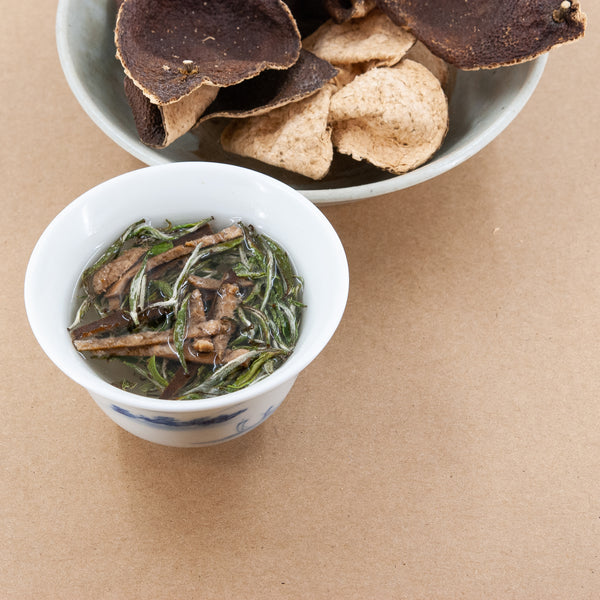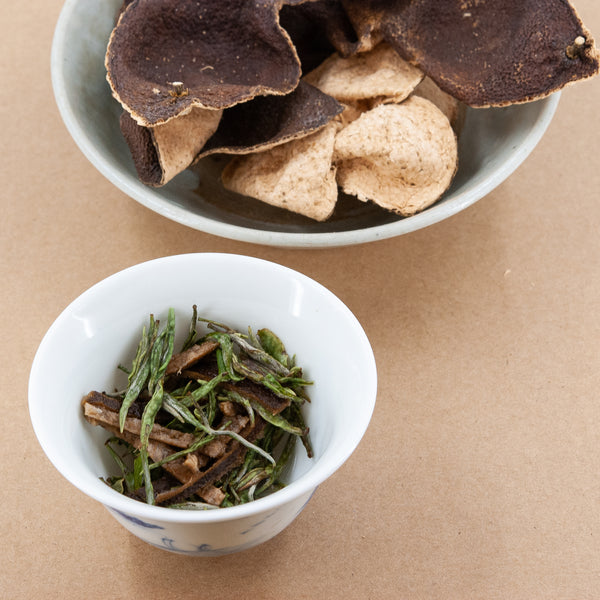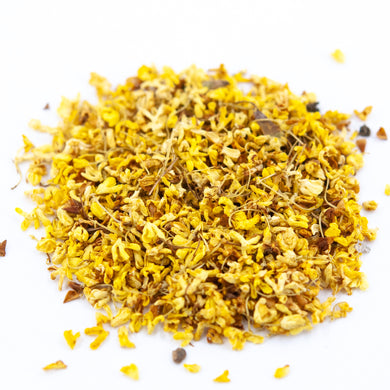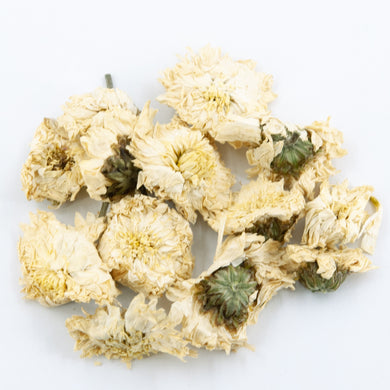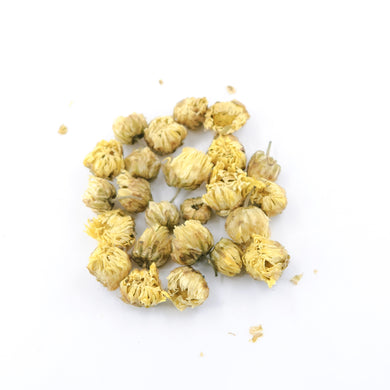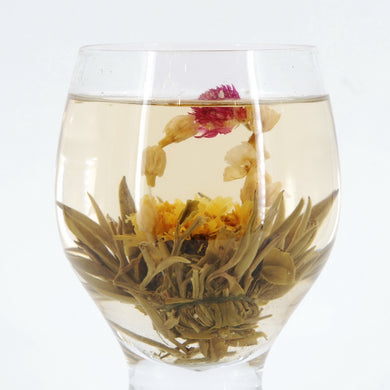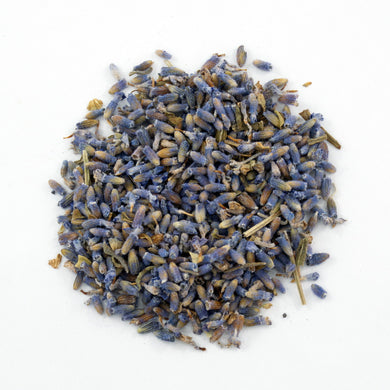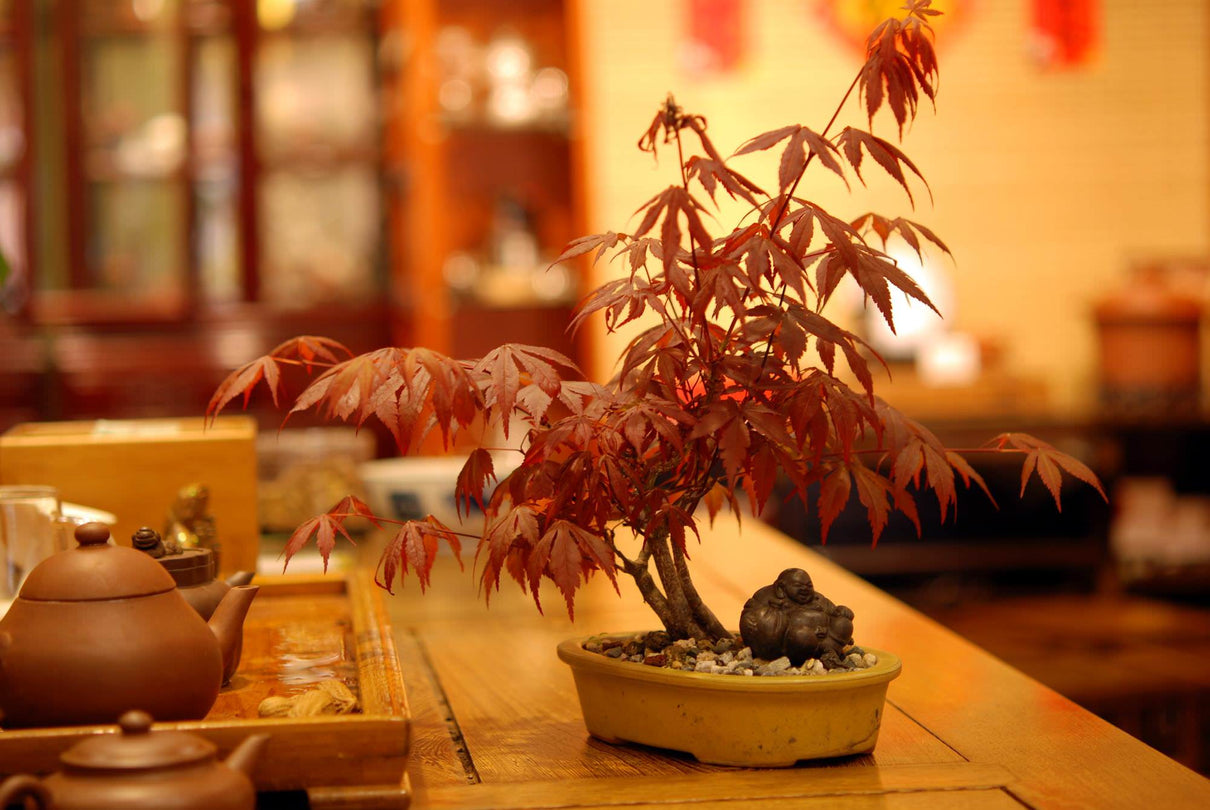Year 2011 Authentic Xinhui Natural Aging Tangerine Peel, Chenpi
We were fortunate to acquire Xinhui Chenpi, also known as 新會陳皮, from a local source in Xinhui. The highest quality chenpi is cultivated in Xinhui, Guangdong province, earning it the distinction of Xinhui chenpi.
These tangerine peels are meticulously processed by using traditional sun-drying methods. They have been carefully aged in a dry and pristine storage environment since 2011. Upon opening the package, you will immediately be greeted by a distinctive aroma. The exterior displays shades of dark green and brown, while the inner surface reveals a light yellow-white hue with intricate fibrous bundles. When illuminated, the peel turns transparent and clear, emitting a delightful and invigorating citrus fragrance. The taste experience begins with a gentle sweetness but concludes with a slightly pungent and bitter note.
This Chenpi is an excellent choice for immediate consumption, allowing you to savor its qualities, as well as for long-term storage to enhance flavor, taste, and health benefits.
How to Brew:
People often inquire about the ideal tea pairing. Chenpi can be steeped by itself using 3 pieces with hot water for a duration of no more than a minute to extract the best flavor and essence. Alternatively, it's a popular choice to combine with various teas, including green, white, black, and pu-erh teas, as well as other herbal teas. We recommend breaking or cutting two pieces of chenpi and blending them with tea leaves. This mixture can be brewed in the Gongfu Cha style or even simmered in a larger pot.
More about Xinhui Chenpi:
Chenpi signifies mature orange peel that undergoes sun-drying. As time elapses, its quality improves. Beyond its role in cooking as a seasoning, chenpi holds significant value as a Chinese herbal medicine. . The cultivation of Xinhui Chenpi has a history of seven hundred years and has been regarded as a tribute due to its exceptional natural conditions. The best Chenpi is produced in Xinhui, Guangdon province. In contrast, chenpi from other locales was considered less potent medicinally and lacked aroma, leading to a numbing sensation in the mouth. However, lower-grade chenpi products from various provinces also populate the market. Research indicates that the maturation process of this particular citrus peel enriches its "volatile oils" and "flavonoids," thereby enhancing its therapeutic value. The official "chenpi" designation is conferred only after a minimum of three years of aging.
Production Method:
Xinhui chenpi is made from the peels of citrus fruits harvested from the core production region of Xinhui Tianma. After meticulous cleaning and sorting, the peels are segmented into three uniform sections. Following a natural air-drying period of four to five hours post-segmentation, the peels lose moisture and soften. Subsequently, the inner layer is scrupulously scraped to create a textured surface. The prepared peels are spread out in drying fields and sun-dried to ensure optimal moisture control. Finally, the dried peels are stored in well-ventilated containers, such as burlap sacks or woven bags, and placed in warehouses to undergo natural aging.
Notice:
Chenpi is a common Chinese herb ingredient in traditional Chinese medicine. While chenpi offers health benefits, it's important to be mindful of certain factors when incorporating it into your diet. We recommend that individuals, particularly those with excessive stomach acid, patients currently taking medication, infants, and pregnant women, consult a doctor before consuming chenpi. This precaution is taken to mitigate any potential adverse effects on the body.
